Speaker: Peter Gimeson (Malvern Instruments Ltd.)
Talk: Managing heat and disorder, calorimetric assays in life sciences [abstract, PDF]
Time: 6 March, 2015, 9:00
Venue: Intercollegiate Faculty of Biotechnology, Kładki 24, lecture hall B
Category: Invited Seminar
Peter Gimeson, biographical note
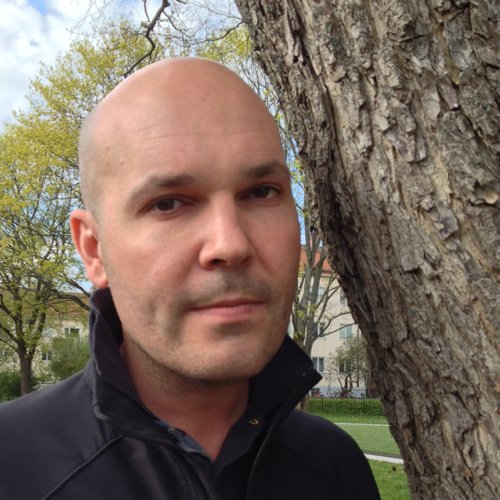 Peter joined Malvern Instruments Ltd 2014 in connection to the acquisition of MicroCal from GE Healthcare. Prior that, Peter worked at GE healthcare, Life sciences as senior application specialist for microcalorimetry covering Europe, Middle East and Africa. The function allows him to interact with users on a daily basis regarding all aspects of instrumentation, assay developments and data analysis in Isothermal Titration Calorimetry and Differential Scanning Calorimetry. He is based in Uppsala, Sweden. The role includes working closely with MicroCal R&D, service and Instrument user groups in both academic and industrial environments. A large part of his work is conducting training sessions, support visits and data analysis consultancy on/off site. Peter holds a Ba in Chemistry, Umeå University, Sweden
Peter joined Malvern Instruments Ltd 2014 in connection to the acquisition of MicroCal from GE Healthcare. Prior that, Peter worked at GE healthcare, Life sciences as senior application specialist for microcalorimetry covering Europe, Middle East and Africa. The function allows him to interact with users on a daily basis regarding all aspects of instrumentation, assay developments and data analysis in Isothermal Titration Calorimetry and Differential Scanning Calorimetry. He is based in Uppsala, Sweden. The role includes working closely with MicroCal R&D, service and Instrument user groups in both academic and industrial environments. A large part of his work is conducting training sessions, support visits and data analysis consultancy on/off site. Peter holds a Ba in Chemistry, Umeå University, Sweden
Speaker: Dr. Tim Maisch, PhD (University Hospital Regensburg, Germany)
Talk: A new trend against Superbugs: The Photodynamic Principle [abstract in PDF]
Time: 20 February, 2015, 9:00
Venue: Intercollegiate Faculty of Biotechnology, Kładki 24, lecture hall B
Category: Invited Lecture
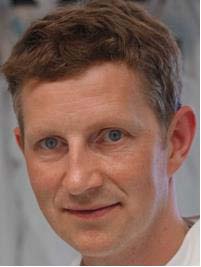 Tim Maisch studied Biology at the University of Erlangen-Nuremberg, Germany. He gained extensive laboratory experience working under the guidance of Prof. Dr. M. Mach at the Institute of Clinical and Molecular Virology, Univ. of Erlangen-Nuremberg. In 1997 he received his diploma and achieved his Ph.D. with a thesis titled "Upregulation of protein expression on endothelial cells infected with human cytomegalovirus” in 2001. Since 2002, he has been working as postdoctoral fellow at the Department of Dermatology, University Hospital of Regensburg on photodynamic inactivation of multi-resistant bacteria. He gained his Postdoctoral Habilitation in 2009 (venia legendi). Since 2008, he is the head of the laboratory of the Department of Dermatology. Currently he is the laboratory head of the Antimicrobial Photodynamic and Cold Plasma Research Unit at the Department of Dermatology, University Hospital Regensburg.
Tim Maisch studied Biology at the University of Erlangen-Nuremberg, Germany. He gained extensive laboratory experience working under the guidance of Prof. Dr. M. Mach at the Institute of Clinical and Molecular Virology, Univ. of Erlangen-Nuremberg. In 1997 he received his diploma and achieved his Ph.D. with a thesis titled "Upregulation of protein expression on endothelial cells infected with human cytomegalovirus” in 2001. Since 2002, he has been working as postdoctoral fellow at the Department of Dermatology, University Hospital of Regensburg on photodynamic inactivation of multi-resistant bacteria. He gained his Postdoctoral Habilitation in 2009 (venia legendi). Since 2008, he is the head of the laboratory of the Department of Dermatology. Currently he is the laboratory head of the Antimicrobial Photodynamic and Cold Plasma Research Unit at the Department of Dermatology, University Hospital Regensburg.
Main objectives of his research interests are:
Research awards
Affiliations
American Society for Microbiology (ASM)
European Society for Photobiology (ESP)
Until now he has 50 publications in peer-reviewed journals and he is associate editor of the journal Photochemistry & Photobiology Sciences and a member of the editorial board of Anti-Infective Agents in Medicinal Chemistry.
| Załącznik | Wielkość |
|---|---|
| 64.27 KB |
Speaker: prof. dr hab. czł. koresp. PAN Włodzimierz Krzyżosiak (Instytut Biochemii Organicznej PAN)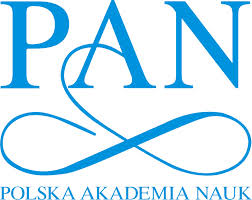
Talk: Patologiczne ekspansje mikrosatelitów – rola RNA w patogenezie i terapii
Time: December 2, 2014, 12:00
Venue: Intercollegiate Faculty of Biotechnology, Kładki 24, lecture hall B
Category: Invited lecture during Academy Open Ceremony at IFB
 Profesor Włodzimierz Krzyżosiak jest kierownikiem Zakładu Biomedycyny Molekularnej w Instytucie Chemii Bioorganicznej PAN w Poznaniu. Jego droga naukowa wiodła od chemii strukturalnej kwasów nukleinowych, poprzez biologię i genetykę molekularną oraz genetykę nowotworów do medycyny molekularnej. Przez pięć lat pracował zagranicą w placówkach badawczych Anglii, Francji, USA i Japonii.
Profesor Włodzimierz Krzyżosiak jest kierownikiem Zakładu Biomedycyny Molekularnej w Instytucie Chemii Bioorganicznej PAN w Poznaniu. Jego droga naukowa wiodła od chemii strukturalnej kwasów nukleinowych, poprzez biologię i genetykę molekularną oraz genetykę nowotworów do medycyny molekularnej. Przez pięć lat pracował zagranicą w placówkach badawczych Anglii, Francji, USA i Japonii.
W ostatnich kilkunastu latach Jego aktywność naukowa skupiała się na poznawaniu roli RNA w patogenezie chorób neurologicznych człowieka wywoływanych ekspansją sekwencji mikrosatelitarnych oraz na poszukiwaniu nowych metod eksperymentalnej terapii w tej grupie chorób. Badał również proces biogenezy cząsteczek mikroRNA, zaburzenia ich funkcji w chorobach mikrosatelitarnych oraz ulepszał narzędzia technologii interferencji RNA dla potrzeb terapii.
Do wcześniejszych osiągnięć naukowych profesora Krzyżosiaka należy opracowanie nowej metody badania struktury RNA w roztworze z wykorzystaniem właściwości jonów metali oraz rekonstytucja funkcjonalnego rybosomu z naturalnych białek i syntetycznego rRNA. Jego nowsze osiągnięcia to stworzenie strukturalnych podstaw do badań roli RNA w patogenezie chorób mikrosatelitarnych, stwierdzenie udziału toksycznego RNA w patomechanizmie choroby Huntintona i opracowanie nowego podejścia terapeutycznego dla tej choroby z wykorzystaniem cząsteczek siRNA działających jak mikroRNA.
Wyniki badań prowadzonych przez profesora Krzyżosiaka zostały trzykrotnie wyróżnione Nagrodą Polskiego Towarzystwa Biochemicznego im. Jakuba Parnasa za najlepszą pracę eksperymentalną wykonaną w polskim laboratorium. W roku 2004 został członkiem korespondentem PAN, w 2007 laureatem Nagrody FNP, a w 2013 odznaczony Krzyżem Oficerskim Orderu Odrodzenia Polski.
 Speaker: Rafał Zieliński, PhD (University of Texas, M.D. Anderson Cancer Center in Houston, USA)
Speaker: Rafał Zieliński, PhD (University of Texas, M.D. Anderson Cancer Center in Houston, USA)
Workshop: Grant writing
Time: Monday 15th July, Tuesday 16th July 2013
Venue: Biotechnology Summer School 2013, Intercollegiate Faculty of Biotechnology, Kładki 24
Category: Invited lecture during Biotechnology Summer School
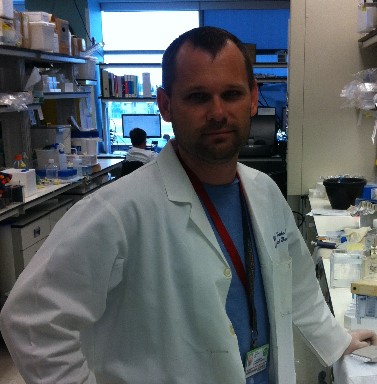 Dr. Rafal Zielinski holds a position at the Department of Experimental Therapeutics, University of Texas, MDAnderson Cancer Center in Houston, TX. He graduated from Catholic University of Lublin, Poland, where he also obtained his PhD. Dr. Zielinski received extensive postdoctoral training at National Institutes of Health, National Cancer Institute, Radiation Oncology Branch, Bethesda MD and Department of Experimental Therapeutics UT, MDAnderson Cancer Center where recently, he was promoted to Research Scientist. His scientific interest is focused on development of new therapies targeting HER2 and oncogenic transcription factors: STAT3, STAT5 and HIF-1a. Dr. Zielinski is an author and co-author of more than twenty peer-reviewed publications. As a Scientist in academic institution, Dr. Zielinski is actively involved in application for research support. His experience involves multiple application for federal (NIH, DOD, SPORE) as well as private foundation grants. Dr. Zielinski also served as reviewer of multiple scientific proposals.
Dr. Rafal Zielinski holds a position at the Department of Experimental Therapeutics, University of Texas, MDAnderson Cancer Center in Houston, TX. He graduated from Catholic University of Lublin, Poland, where he also obtained his PhD. Dr. Zielinski received extensive postdoctoral training at National Institutes of Health, National Cancer Institute, Radiation Oncology Branch, Bethesda MD and Department of Experimental Therapeutics UT, MDAnderson Cancer Center where recently, he was promoted to Research Scientist. His scientific interest is focused on development of new therapies targeting HER2 and oncogenic transcription factors: STAT3, STAT5 and HIF-1a. Dr. Zielinski is an author and co-author of more than twenty peer-reviewed publications. As a Scientist in academic institution, Dr. Zielinski is actively involved in application for research support. His experience involves multiple application for federal (NIH, DOD, SPORE) as well as private foundation grants. Dr. Zielinski also served as reviewer of multiple scientific proposals.
 Speaker: Prof. Dan Tawfik (Weizmann Institute of Science in Rehovot, Israel)
Speaker: Prof. Dan Tawfik (Weizmann Institute of Science in Rehovot, Israel)
Talk: Laboratory molecular evolution
Time: Saturday 13th July 2013, 9:40
Talk: Protein strcuture-function in the light of molecular evolution
Time: Sunday 14th July 2013, 11:45
Venue: Biotechnology Summer School 2013, Intercollegiate Faculty of Biotechnology, Kładki 24
Category: Invited lectures during Biotechnology Summer School
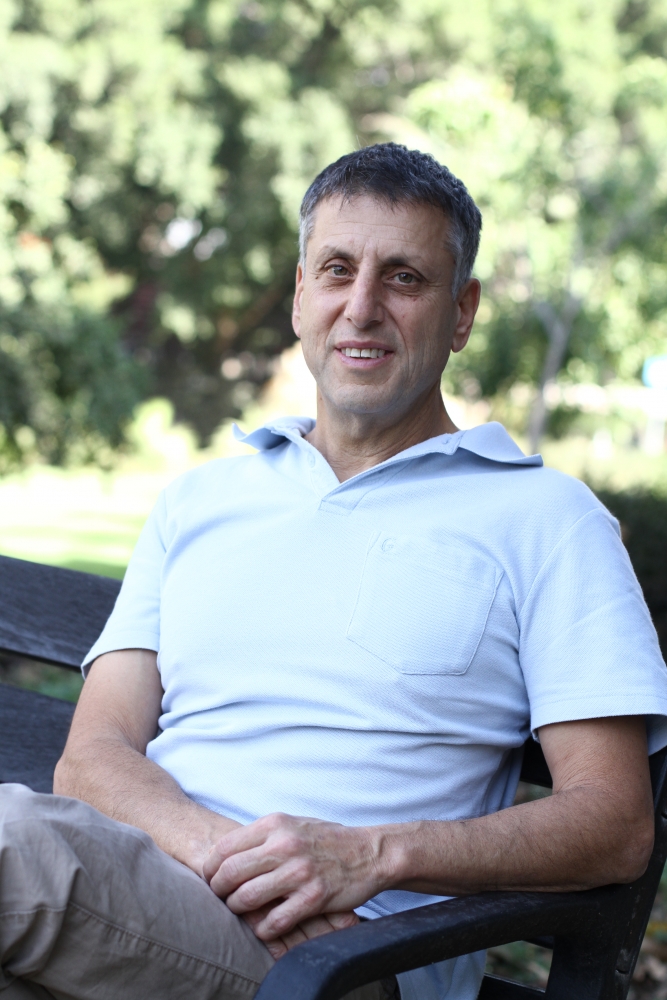 Born in Jerusalem, Prof. Tawfik received a B.Sc. in chemistry and biochemistry from the Hebrew University of Jerusalem in 1988, and an M.Sc. in biotechnology in1990. He did his doctoral work at the Weizmann Institute under the supervision of Profs. Zelig Eshhar and Michael Sela, and was granted a Ph.D. in 1995 on the basis of his thesis: “Towards Antibody-Mediated Peptide Hydrolysis.”
Born in Jerusalem, Prof. Tawfik received a B.Sc. in chemistry and biochemistry from the Hebrew University of Jerusalem in 1988, and an M.Sc. in biotechnology in1990. He did his doctoral work at the Weizmann Institute under the supervision of Profs. Zelig Eshhar and Michael Sela, and was granted a Ph.D. in 1995 on the basis of his thesis: “Towards Antibody-Mediated Peptide Hydrolysis.”
In 1996, Prof. Tawfik completed two years of postdoctoral research under Prof. Alan Fersht, at Cambridge University and the MRC Centre for Protein Engineering (UK). From 1997 to 2001, he held the position of senior research fellow at Sidney Sussex College, as well as at the MRC Centre for Protein Engineering, where he was appointed group leader in chemical biology in 1999. Prof. Tawfik joined the staff of the Department of Biological Chemistry at the Weizmann Institute of Science in thespring of 2001, where he serves now as full Professor. He has received numerous awards and fellowships, including the Sir Charles Clore Prize, the Weizmann Institute’s highest honor for a newly-appointed senior scientist, the Wolgin Prize, and the Haim Weizmann Prize by the City of Tel-Aviv, and the EMBO membership. He entered the field of protein evolution through his interest in enzyme engineering, when he realized that unraveling the mysteries of protein evolution is a charming intellectual endeavor and a powerful way of facilitating protein engineering. Research in the Tawfik laboratory integrates protein science, and chemical and evolutionary biology. Enzymes ranging from hydrolases to DNA methyltransferases are being studied, while addressing both the applicative and fundamental aspects of protein evolution. Proteins present a dichotomy. They are highly robust and remarkably proficient and specific. They can, nonetheless, rapidly change and adopt new structures and functions, as manifested in the rapid emergence of resistance in plants, insects, and bacteria, or of herbicide and pesticide degrading enzymes.
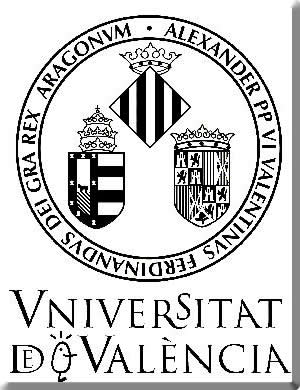 Speaker: Prof. Juli Peretó (Valencia University, Spain)
Speaker: Prof. Juli Peretó (Valencia University, Spain)
Talk: Discussing on the origin of life as an educational tool in biochemistry
Time: Saturday 13th July 2013, 10:25
Venue: Biotechnology Summer School 2013, Intercollegiate Faculty of Biotechnology, Kładki 24
Category: Invited lecture during Biotechnology Summer School
 Juli Peretó is Tenured Professor at the Department of Biochemistry and Molecular Biology, and researcher at the Evolutionary Genetics Unit, Cavanilles Institute for Biodiversity and Evolutionary Biology, University of València. His research interests include the evolution of metabolism, the minimal genome concept, and the history of ideas on the natural origin and the artificial synthesis of life. He teaches metabolism in an evolutionary context to biologists, biochemists and biotechnologists. Currently coordinates a consortium of eight European universities in the Erasmus IP course Origin, Evolution and Future of the Biosphere. He was formerly Secretary of the International Society for the Study of the Origin of Life (ISSOL-The International Astrobiology Society) and has been elected as Second Vice President of ISSOL for the term 2011-2014. His most recent book, coauthored with A. Moya, is “Simbiosis: seres que evolucionan juntos” (Síntesis, Madrid, 2011).
Juli Peretó is Tenured Professor at the Department of Biochemistry and Molecular Biology, and researcher at the Evolutionary Genetics Unit, Cavanilles Institute for Biodiversity and Evolutionary Biology, University of València. His research interests include the evolution of metabolism, the minimal genome concept, and the history of ideas on the natural origin and the artificial synthesis of life. He teaches metabolism in an evolutionary context to biologists, biochemists and biotechnologists. Currently coordinates a consortium of eight European universities in the Erasmus IP course Origin, Evolution and Future of the Biosphere. He was formerly Secretary of the International Society for the Study of the Origin of Life (ISSOL-The International Astrobiology Society) and has been elected as Second Vice President of ISSOL for the term 2011-2014. His most recent book, coauthored with A. Moya, is “Simbiosis: seres que evolucionan juntos” (Síntesis, Madrid, 2011).
 Speaker: Prof. Jarosław Marszałek (Intercollegiate Faculty of Biotechnology UG&MUG, Poland)
Speaker: Prof. Jarosław Marszałek (Intercollegiate Faculty of Biotechnology UG&MUG, Poland)
Talk: Evolution from Modern to Functional Synthesis
Time: Saturday 13th July 2013, 9:20
Venue: Biotechnology Summer School 2013, Intercollegiate Faculty of Biotechnology, Kładki 24
Category: Invited lecture during Biotechnology Summer School
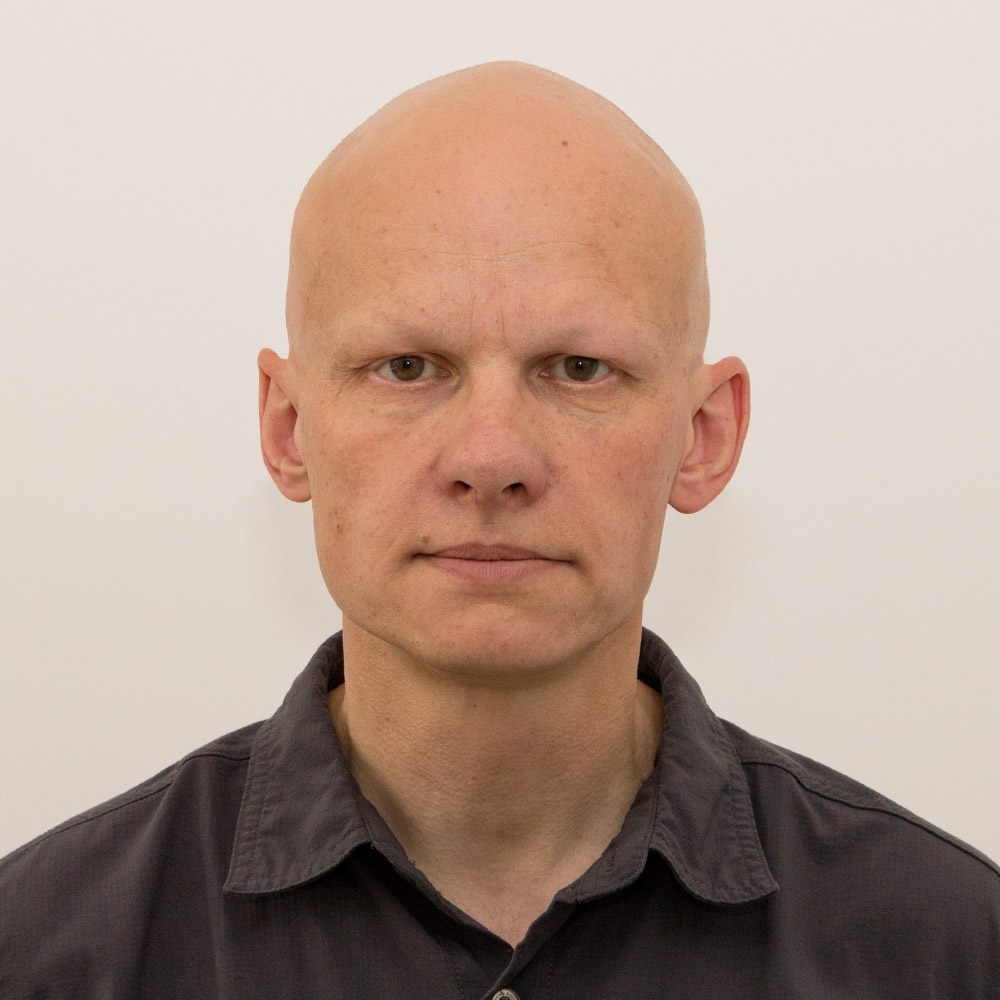 Jaroslaw Marszalek is Tenured Professor at the Department of Molecular and Cellular Biology at Intercollegiate Faculty of Biotechnology of University of Gdansk and Medical University of Gdansk. He leads Laboratory of Evolutionary Biochemistry. The main focus of his research is the role of molecular chaperones of Hsp70 system in essential mitochondrial processes such as biogenesis of iron-sulfur clusters containing proteins and maintenance and propagation of mitochondrial genomes. He studies the role of Hsp70s in these processes from functional, structural and evolutionary perspective. He teaches Molecular Evolution. Prof. Marszalek is also a Visiting Associate Professor at the Department of Biochemistry, University of Wisconsin-Madison, USA.
Jaroslaw Marszalek is Tenured Professor at the Department of Molecular and Cellular Biology at Intercollegiate Faculty of Biotechnology of University of Gdansk and Medical University of Gdansk. He leads Laboratory of Evolutionary Biochemistry. The main focus of his research is the role of molecular chaperones of Hsp70 system in essential mitochondrial processes such as biogenesis of iron-sulfur clusters containing proteins and maintenance and propagation of mitochondrial genomes. He studies the role of Hsp70s in these processes from functional, structural and evolutionary perspective. He teaches Molecular Evolution. Prof. Marszalek is also a Visiting Associate Professor at the Department of Biochemistry, University of Wisconsin-Madison, USA.
Speaker: Jean-Luc Lebrun, Writer and Trainer of Scientists in communication skills
Workshop: Grant writing
Time: Monday 15th July, Tuesday 16th July 2013
Venue: Biotechnology Summer School 2013, Intercollegiate Faculty of Biotechnology, Kładki 24
Category: Invited lecture during Biotechnology Summer School
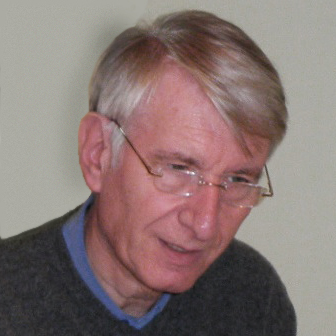 Jean-Luc Lebrun has managed research programs while working at Apple Computer in its Advanced Technology Research group for over ten years. He subsequently invested his energy in the commercialization of research at Kent Ridge Digital Labs, a Singapore-based IT lab. He now leaves in San Jose California.
Jean-Luc Lebrun has managed research programs while working at Apple Computer in its Advanced Technology Research group for over ten years. He subsequently invested his energy in the commercialization of research at Kent Ridge Digital Labs, a Singapore-based IT lab. He now leaves in San Jose California.
For the past twelve years, Jean-Luc Lebrun has been conducting courses on grant writing, scientific writing, and scientific presentation for more than three thousand scientists, researchers, clinicians, and doctoral students in South East Asia and Europe. He was recently in Krakow and Warsaw giving seminars on scientific writing for the Foundation for Polish Science. He willingly agreed to return to Poland, a country he appreciates, and share with the participants to the summer school of Biotechnology his practical knowledge on grant writing.
He is an author of three books on scientific writing and scientific presentations: "Scientific Writing 2.0 - a reader and writer's guide"; "When the scientist presents" (Both published by World Scientific Publishing Inc) and "Guide Pratique de rédaction scientifique"(published by EDP - éditions de Physique).
He is also co-designer of a computer program to assess the quality of a scientific paper prior to publication (SWAN - freely accessible online at http://cs.joensuu.fi/swan/). Team Members: Jean-Luc Lebrun, Tuomo Kakkonen, Tomi Kinnunen, Henri Leisma, Ernest Arendarenko.
SWAN is a Java application that takes a typical scientific paper (not a review paper) and analyses it to detect writing problems: lack of structure, lack of fluidity, lack of clarity, lack of focus (among others). It does so with the help of the writer who answers a few questions prior to automatic analysis. It delivers an extensive diagnostic report suggesting ways to improve the paper.
 Speaker: Grzegorz Kudla, PhD (MRC Human Genetics Unit, University of Edinburgh, Scotland)
Speaker: Grzegorz Kudla, PhD (MRC Human Genetics Unit, University of Edinburgh, Scotland)
Talk: Synonymous but not the same: causes and consequences of codon bias
Time: Sunday 14th July 2013, 10:15
Venue: Biotechnology Summer School 2013, Intercollegiate Faculty of Biotechnology, Kładki 24
Category: Invited lecture during Biotechnology Summer School
 Grzegorz Kudla is a group leader at the MRC Human Genetics Unit, University of Edinburgh, Edinburgh, Scotland. After receiving his doctorate in the Maciej Zylicz lab, International Institute of Molecular and Cell Biology, Warsaw, Poland, he worked as a postdoc with Joshua Plotkin at Harvard University and with David Tollervey at the University of Edinburgh, to study the influence of codon bias on gene expression. He is currently developing experimental and bioinformatic tools to study regulation of gene expression, protein-RNA interactions, and RNA-RNA interactions. Since 2008 he has served as Academic Editor of the open access journal PLoS ONE.
Grzegorz Kudla is a group leader at the MRC Human Genetics Unit, University of Edinburgh, Edinburgh, Scotland. After receiving his doctorate in the Maciej Zylicz lab, International Institute of Molecular and Cell Biology, Warsaw, Poland, he worked as a postdoc with Joshua Plotkin at Harvard University and with David Tollervey at the University of Edinburgh, to study the influence of codon bias on gene expression. He is currently developing experimental and bioinformatic tools to study regulation of gene expression, protein-RNA interactions, and RNA-RNA interactions. Since 2008 he has served as Academic Editor of the open access journal PLoS ONE.
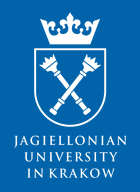 Speaker: Prof. Ryszard Korona (Jagiellonian University, Krakow, Poland)
Speaker: Prof. Ryszard Korona (Jagiellonian University, Krakow, Poland)
Talk: Evolution under failed selection
Time: Sunday 14th July 2013, 9:00
Venue: Biotechnology Summer School 2013, Intercollegiate Faculty of Biotechnology, Kładki 24
Category: Invited lecture during Biotechnology Summer School
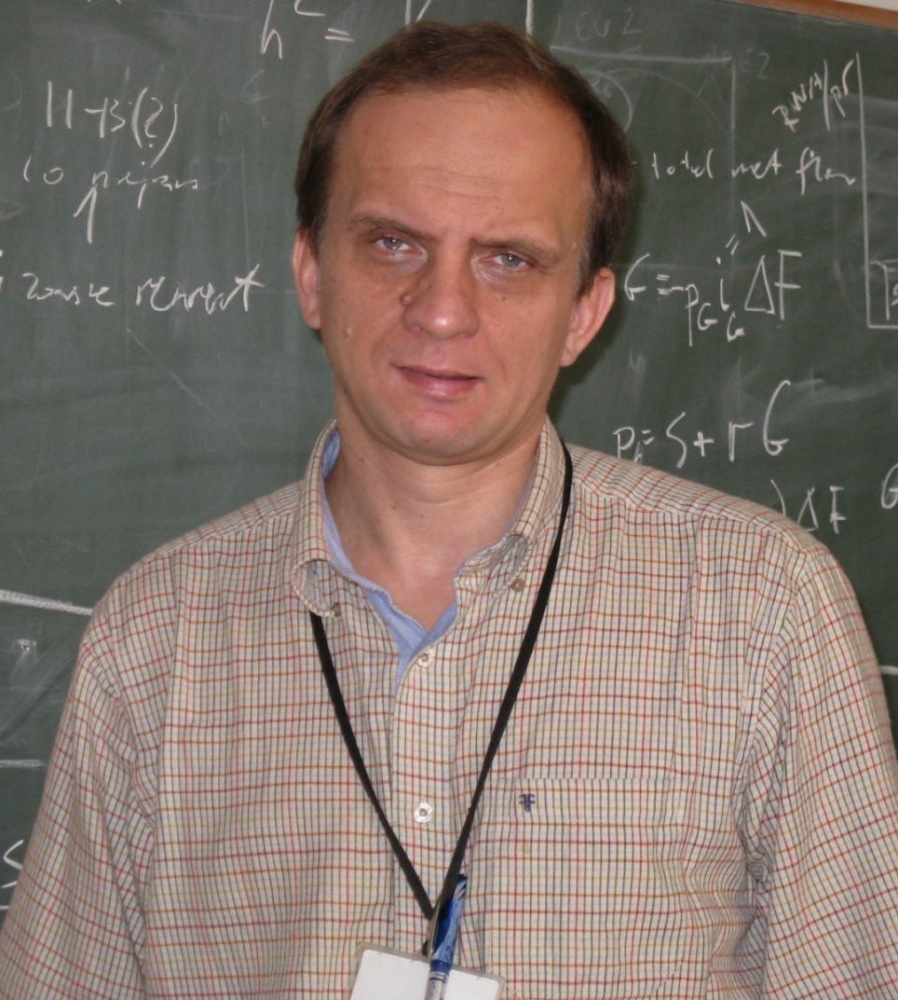 Ryszard Korona is a professor at Jagiellonian University in Krakow. His PhD was on competitive behavior of beetles, post-doctoral training on co-evolution of bacteria-phage systems. For some fifteen years uses the budding yeast as an experimental organism in the study of evolutionary genetics and genomics. His research projects concentrate on: genetic determinants of major components of fitness, such as rate of growth and survival, stress resistance; spontaneous mutations, their rate of origin, selective value, dominance status, genetic interactions; molecular mechanisms of phenotypic buffering of mutational damage; experimental evolution of laboratory of microorganisms.
Ryszard Korona is a professor at Jagiellonian University in Krakow. His PhD was on competitive behavior of beetles, post-doctoral training on co-evolution of bacteria-phage systems. For some fifteen years uses the budding yeast as an experimental organism in the study of evolutionary genetics and genomics. His research projects concentrate on: genetic determinants of major components of fitness, such as rate of growth and survival, stress resistance; spontaneous mutations, their rate of origin, selective value, dominance status, genetic interactions; molecular mechanisms of phenotypic buffering of mutational damage; experimental evolution of laboratory of microorganisms.